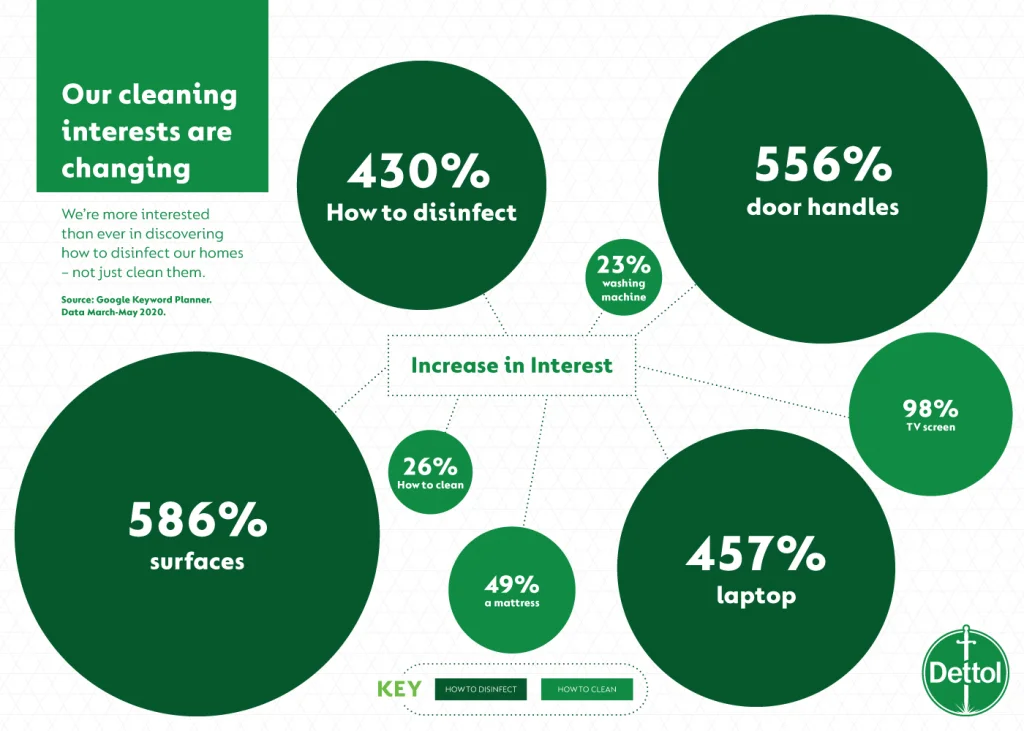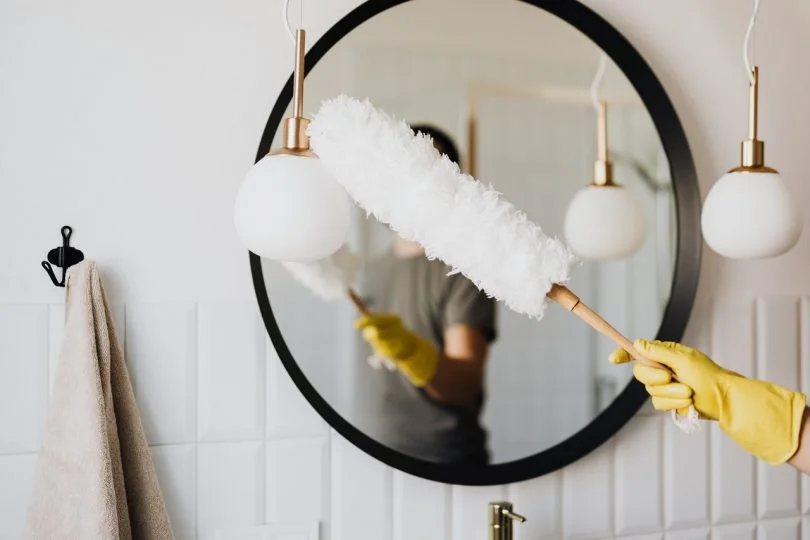Since the pandemic took hold in March 2020, the UK public has subtly shifted their approach to home cleaning. This is according to new data in a report published by Dettol earlier this year.
The report focuses on a three-month period from March to May 2020. Using Google Keyword Planner data, it analyses search engine terms that soared – and regressed – in popularity.
The results make for interesting reading. We all spent less time looking for information on non-essential household chores (how to get rid of mould; take care of wax; clean burnt irons and so on) and more time trying to figure out how to deep clean our homes and electronic appliances.
The reason for this shift is, of course, COVID-19, which made a burnt iron seem like the last thing in the world to worry about. Suddenly, an unclean home appeared to be a recipe for disaster – a potential breeding ground for harmful germs.
With this in mind, we’re going to dissect the most interesting findings from the report in the article to follow, so stay tuned to learn more.

What key areas should I watch out for when cleaning and disinfecting?
The Dettol report does a great job of talking about what you should do to keep your home hygienic – and what’s surprising is just how innocuous many of these chores seem.
- Firstly, take your shoes off when you come indoors to prevent the spread of bacteria throughout the home. This is a simple yet hygienic trick you can start using today.
- Next, wash your hands when you go inside. Your hands are germ carriers, and dirty hands spread germs quickly. So get into the habit of running them under soap and water, or using a hand gel.
- From here, you want to take an antibacterial wipe to the surfaces that you touch most often. These are going to be:
- Door handles
- The toilet flush
- The kitchen door handle
- Cupboard door handles
- Light switches
- Food preparation areas
- You also want to get into the habit of regularly washing towels that people are sharing in the house, including dish towels.
By cleaning your hands, and disinfecting surfaces you regularly touch, you’re doing most of the work. Have this routine in place and you won’t need to worry about too much else. It won’t hurt to take a wipe to your phone or your laptop, but provided your hands are washed regularly, and no one else is touching these devices, you’re going to be fine.
In the end, it’s the small and innocuous areas of the home that are actually the dirtiest.
Is deep cleaning important?
Deep cleaning is one trend that has seen a sharp rise in interest. Understandably, we want to make sure our home is hygienic, and deep cleaning seems like the reasonable solution.
But in actual fact, the report suggests you’re better off focusing on the tasks mentioned in the point above, and saving a deep clean for the day you’re having a guest over.
A deep clean might see you scrub the floors and wash sofa covers, but these aren’t actually the touchpoints that are likely to get you ill.
What have we learned then? Well, first and foremost, the UK public cares about hygiene. But if the report illustrates anything, it’s that big, extravagant deep cleans aren’t all that effective. In reality, it’s the everyday disinfection routine – of the little things – that really helps.









